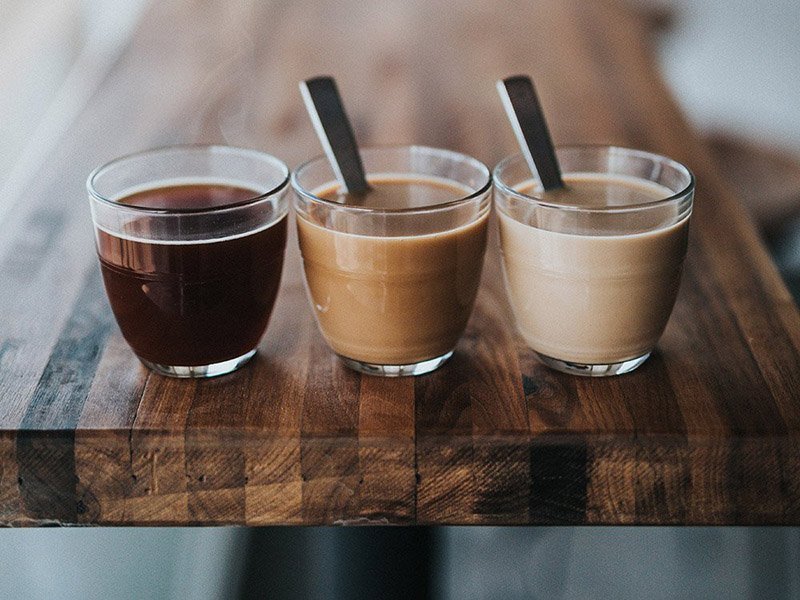
All about beans
Decaf coffee is the dreamy hot drink that lets you have your cake and eat it too. If you want to cut back on your caffeine intake but can’t resist a rich, aromatic roast, switching to decaf does the trick. Our award-winning blend from Colombia combines irresistible notes of toffee and black cherry, for a well-rounded flavour that isn’t impacted by the decaffeination process.
If you are thinking of switching, but don’t know much about decaf, you came to the right place. We’re here to answer all of your pressing questions, including:
Gone are the days of dreadful decaf, when poor processes used to extract caffeine also stripped away some of that classic coffee taste. These days, good quality decaf coffee should be barely discernible from its caffeinated cousin. This is especially true of barista-style and artisanal blends. Instant coffee or blends which use robusta beans tend to have the most noticeable flavour differentiation because they start out with a lower-quality product.
That being said, there are several different decaffeination processes, and some can affect flavour more than others. Solvents, water, and carbon dioxide can all be used to varying degrees of success. At Neighbourhood, we use natural by-products to gently tease out caffeine molecules without affecting flavour and aroma.
So, does drinking decaf coffee make you wee? The short answer is no. The mild diuretic effects of regular coffee are down to the caffeine content. However, it’s worth noting that it can take as much as 300mg of caffeine to actually affect the number of times you’ll be nipping to the loo. That’s over three cups of coffee.
Many people notice they wee more when drinking coffee simply because they are taking on more fluids, and would notice the same effects if they switched their coffee for water. So unless you knock back gallons of the stuff, drinking decaf coffee is not going to affect your lavatory schedule. In fact, it’s a great way to up your fluid intake if you struggle to drink water throughout the day, especially if you stick to black, no sugar.
When consumed in large quantities or late in the evening, drinking regular coffee can sometimes affect your sleep. This is because caffeine is a stimulant which has been shown to increase alertness and stave off tiredness. But does decaf coffee keep you awake as well?
Thankfully the answer is no! Many java aficionados switch to decaf coffee in the evenings to ensure a restful night’s sleep. With around 0.2% of the caffeine content of regular coffee, decaf promises sweet dreams without compromising on your evening coffee fix.
Most people switch to decaf coffee simply to reduce their caffeine intake, for example, if they are pregnant or struggle to fall asleep at night. But apart from this, there aren’t any specific health benefits to switching. Both decaf coffee and regular coffee contain nutrients and antioxidants to boost your natural defences against diseases, so you can simply choose the brew to suit you.
There is a common misconception about coffee. Because of its reputation as a diuretic, many people believe coffee can cause you to wee more and lose too much water, leading to dehydration. However, as we discussed above, regular coffee is actually classed as a mild diuretic, and when consumed in moderation, can even count towards your fluid intake for the day.
When you remove the caffeine (or at least most of it), decaf coffee has no diuretic effects whatsoever, making it a worry-free way to stay hydrated throughout the day. Unlike many artificially flavoured soft drinks, drinking decaf coffee also has other health benefits. It contains a number of essential nutrients and antioxidants to help fight free radicals, fending off things like heart failure and high blood pressure.
If you are particularly sensitive to the stuff, you might be surprised to learn that decaf isn’t completely caffeine free. It’s difficult to extract all of the caffeine from every bean, so usually trace amounts still remain. In the UK, the caffeine content of the average decaf coffee varies between 2 – 15 mg per cup, compared to 100mg in a regular cup of joe.
For delicious decaf coffee with a full-bodied flavour, why not try our award-winning Colombian blend (I Can’t Get No) Caffeination. We use premium beans and a careful decaffeination process to ensure none of that delicious treacly sweetness is lost along the way.